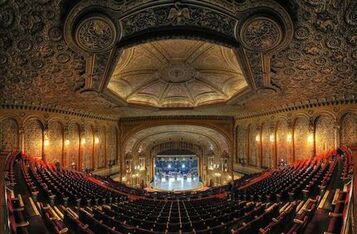
“The artists whose work helps to sustain us have faced particularly devastating circumstances resulting from unemployment, underemployment, and a lack of predictable paid incomes,” said Elizabeth Alexander, president of the Mellon Foundation. “It’s critical for the vibrancy of our cities that we recognize that making art is work, and artists are among our nation’s most dedicated and necessary drivers of our economy.”
The coronavirus has derailed New York’s cultural sector, which before 2020 had accounted for nearly half a million jobs and generated around $120 billion for the state. While many art institutions around the state have reopened in some form, many are working with decimated workforces and budgets. The performing arts industry has taken the hardest blow, with 50 percent of those jobs being lost statewide, 72 percent in New York City, whose arts and recreation sector suffered a 60 percent drop in employment between February and April of last year.
Following the May 6 formation of the City Artist Corps—a $25 million federally backed effort to put artists in New York City back to work—CRNY’s announcement is the latest of several initiatives in the country to experiment with universal basic income, increasingly considered as a viable solution to the virus’s uneven costs; San Francisco implemented a general income pilot program for artists last October.
“These funds will address the financial hardship and combat systemic inequities that have long plagued the sector,” said Emil J. Kang, the program director for arts and culture at the Mellon Foundation. “This is particularly the case for those artists serving small-to-midsized organizations, often led by and serving BIPOC communities.”
Helmed by arts administrator Sarah Calderon, most recently the managing director of ArtPlace America, CRNY will on July 1 name its advisory board, to include artists, policymakers, researchers, and nonprofit leaders. Additional funding details will be announced on August 31.

 RSS Feed
RSS Feed